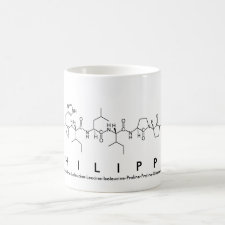
Authors: Xiao P, Dudal Y, Corvini PFX, Spahr P, Shahgaldian P
Article Title: Synthesis and characterization of fluoroquinolone-imprinted polymeric nanoparticles.
Publication date: 2012
Journal: Reactive and Functional Polymers
Volume: 72
Issue: (4)
Page numbers: 287-293.
DOI: 10.1016/j.reactfunctpolym.2012.02.006
Alternative URL: http://www.sciencedirect.com/science/article/pii/S1381514812000351
Abstract: Molecularly imprinted polymeric nanoparticles have been prepared by means of the precipitation polymerization method using a fluoroquinolone, levofloxacin, as a template, methacrylic acid as a functional monomer and 2-ethyl-2-(hydroxymethyl)propane-l,3-diol as a crosslinker. The synthesized polymers have been characterized using scanning electron microscopy that revealed that the produced systems are sub-micrometer-sized particles with a diameter ranging from 50 to 100 nm. The study of the interactions of these polymers with selected fluoroquinolones (levofloxacin, ofloxacin, and ciprofloxacin), acetaminophen, diclofenac, aspirin, and sulfamethoxazole has been carried out in acetonitrile and water. It is demonstrated that the amounts of levofloxacin and its structural analogues (ofloxacin and ciprofloxacin) bound to the molecularly imprinted polymeric nanoparticles are higher than those bound to the non-imprinted nanoparticles both in acetonitrile and in water; the binding of acetaminophen, diclofenac, aspirin and sulfamethoxazole onto both the imprinted and non-imprinted nanoparticles are shown to be significantly lower. In water, it has been shown that even if decreased, the imprinted nanoparticles retain a relevant selectivity for the studied fluoroquinolones, and the binding of other studied pharmaceuticals are not enhanced significantly (e.g. acetaminophen) or even suppressed (e.g. diclofenac sodium, aspirin and sulfamethoxazole) by the molecular imprinting
Template and target information: levofloxacin, fluoroquinolines
Author keywords: Molecularly imprinted polymers, precipitation polymerization, nanoparticles, fluoroquinolone, Levofloxacin



Join the Society for Molecular Imprinting

New items RSS feed
Sign-up for e-mail updates:
Choose between receiving an occasional newsletter or more frequent e-mail alerts.
Click here to go to the sign-up page.
Is your name elemental or peptidic? Enter your name and find out by clicking either of the buttons below!
Other products you may like:
 MIPdatabase
MIPdatabase









